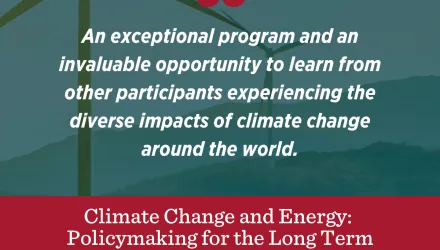Abstract
A growing number of municipal governments are joining efforts to mitigate global climate change. For example, 75 city and county governments in the U.S. participate in the Cities for Climate Protection (CCP) campaign sponsored by the International Council for Local Environmental Initiatives (ICLEI). Leaders in these communities have publicly recognized global climate change as a legitimate concern at the local level and committed to addressing that threat by controlling local greenhouse gas (GHG) emissions. Why do municipal governments join the CCP campaign and make these commitments, especially given that climate change is generally framed as a global issue? Why have some CCP member cities been more successful in implementing policies and programs to control GHG emissions? Of particular interest is the role of global climate change assessment in the process of reframing global warming as a local issue and in developing local policies for controlling GHG emissions.
Drawing on a comparative case study of three U.S. cities (Denver, Milwaukee and Indianapolis), I find that global climate change is most likely to be reframed as a local issue when the preferred policy response (controlling GHG emissions) can be linked to issues (e.g. air quality) already on the local agenda. In the cases examined, global climate change assessment had little effect on this reframing process, primarily because municipal officials were not linked to any mechanism by which global climate change assessment might cross the boundaries between knowledge and action, from the global to the local scale. Even when local governments recognize that they should do something to control GHG emissions, they face a number of institutional barriers that make it difficult to move from reframing to policy action.
Ironically, the findings of this study suggest that the most effective way to get municipal governments to take action on global climate change is to not talk about global climate change. If the objective is to involve cities in global efforts to control GHG emissions, the best strategy may be to "Think Locally, Act Locally."
Betsill, Michele. “Localizing Global Climate Change: Controlling Greenhouse Gas Emissions in U.S. Cities.” Harvard Kennedy School, September 2000



